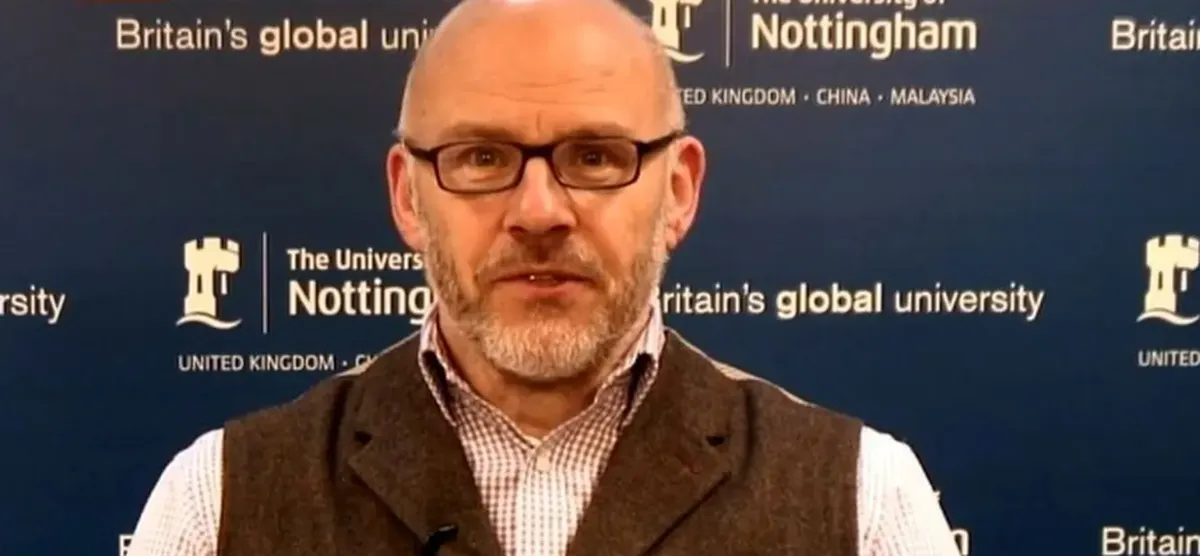Senior Academician: New French Gov't to Face Domestic, Foreign Challenges

Paul Smith, who is an expert in 19th and 20th-century French politics, political institutions, and political culture, took part in a question-answer interview with ANA over recent developments in France’s political arena.
Smith has studied history at the School of Slavonic and East European Studies and at Oxford, where he completed his D.Phil thesis on the French women's movement between the two world wars.
He has published several books and articles on the French Senate, feminism in France, and the making of memory. He works at the Department of French and Francophone Studies at Nottingham and has been a visiting professor at the University of Limoges. He also writes a French politics blog, appears on international news channels, and writes for The Conversation.
Hereunder is a full copy of the interview:
Q: Last month, we witnessed the fall of the government in France and the introduction of a new one. What was the main reason for the fall of the French government?
A: The Barnier government was a minority government based on the support of the centre-right Macronists and the right-wing Les Républicains, but it also relied not so much on the support of the far-right Rassemblement National of Marine Le Pen, but her not censuring it.
She decided, in the event to vote with the left on a motion of no confidence in order to deflect attention away from her own problems in the courts and to try to speed France towards a presidential election.
Q: What is the biggest challenge facing the new French government in domestic and foreign affairs?
A: Getting a budget through parliament will be the focus in France and reducing the public deficit. Beyond, French prestige remains where it was, but the incoming US regime will be the one to watch and Macron’s relationship with Trump is crucial. Also, in the European context, the Paris-Berlin axis looks in severe need of rescue.
Q: Could this change of government be attributed to the increasing influence of the French far-right, led by the Rassemblement national, and ultimately to their formation of a government?
A: Yes and no. It is also to do with the problem Macron has of being able (or rather unable) to negotiate with the centre-left, by which I mean the Socialists. While the cracks within the New Popular Front electoral alliance are there for all to see, all the same, the Socialists refuse to back a government that promises austerity and refuses to rethink the pension's bill.
Q: Can this change of government and political developments in France be seen as a way of preparing the country for a change in US policies during the presidency of Donald Trump?
A: No, I don’t think so. France has a deeply pragmatic foreign policy, whatever outsiders might think. There are also adjustments being made by Macron to the more traditional aspects of French foreign policy. But we still don’t really know what Trump’s foreign policy will look like, yet. For all the noise coming from the president-elect, no-one knows how that will play out.
Q: In recent weeks, we have witnessed Elon Musk supporting far-right parties in Britain and Germany. Is it possible that this support for similar parties will be repeated in France?
A: Yes, I think it is perfectly possible, but the far-right in France has its own billionaire media mogul, Vincent Bolloré, so the RN doesn’t need Musk in the way that the Reform Party in the UK does, for example.
Q: We have recently witnessed developments similar to those in France in Austria. What is the main reason for the change in the approach of European societies towards the far-right?
A: In part it is the outcome of mainstreaming of far-right parties by the political establishment. Instead of keeping the far-right out of the media, for example, for the last 20 or 30 years these parties have been able to spread their message quite easily. At the same time, the notion of ‘rottenness’ at the core of politics and the need for ‘change’ is strong. The far-right attacks on two fronts: we are not of the Establishment and therefore not corrupt (even though they are) and also the argument that ordinary ‘real’ French people are victims of outsiders/foreign ideas (EU, immigrants, Islam, wokeness…)
Q: How do you assess the future of the French government?
A: Back in early December Macron promised he would see out his mandate. This was a message to moderate centre-left Socialist deputies in the National Assembly that if they were willing to abandon the far-left La France Insoumise, they would have time to strengthen their positions in the constituencies and also to find a potential presidential candidate for 2027. That was Macron's way of trying to encourage them into a broad national unity government, stretching from the Socialists and Greens, say, across the Centre to Les Républicains on the right. It failed. Can the new government succeed? Difficult to say, but if it can hold on until the verdict in Le Pen’s trial for misuse of EU funds to support her party, then that could change the balance.
At the moment, no-one apart from her and La France Insoumise wants a presidential election. No-one has a candidate ready to go. But that doesn’t mean they will help Bayrou or Macron Personally, I am cautiously pessimistic.
In his address to the French people on New Year’s Eve, Macron made an oblique reference to a consultation of the French people in the course of 2025, but was a bit vague on what that meant. A referendum on what? Or something like the public consultation process that followed the Yellow Vest movement in 2019? That led nowhere. Macron needs to say less.
4155
By: Mohammad Hassan Goudarzi





















